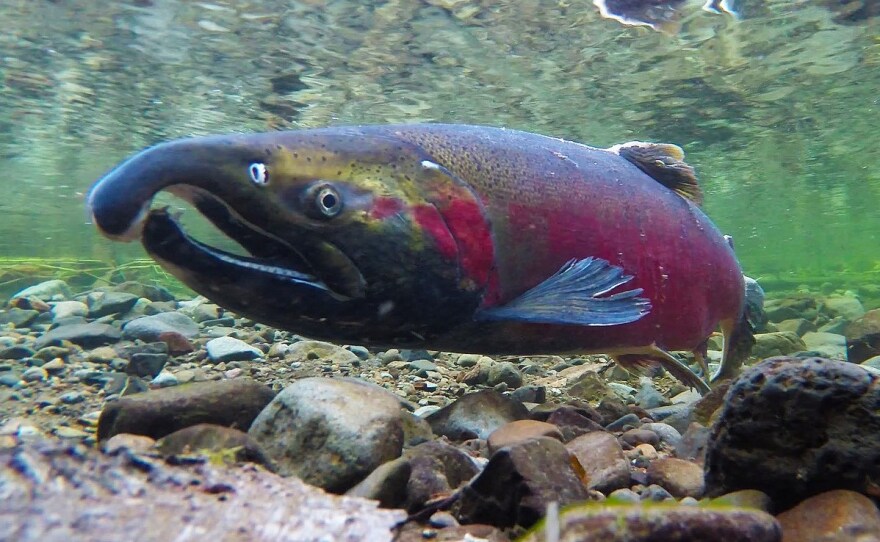It’s long been known that shellfish and other marine life are sensitive to ocean acidification caused by increased carbon dioxide in the atmosphere. Some fish lose their sense of smell in acidic waters. There was a hope that salmon would not be affected. A new study shows otherwise.
A research team from the University of Washington and NOAA Fisheries spent two years observing the effects of elevated CO2 in saltwater on juvenile coho salmon.
They tested the smolts’ behavior in seawater that had current pH levels compared to levels expected 50 and 100 years into the future, assuming humans continue to emit carbon pollution at current rates. In other words, they simulated worst-case scenario CO2 levels.
Because salmon are resilient and experience a wide range of pH and other chemical exposures as they migrate from freshwater to the ocean, researchers thought their test fish might not be affected. But lead author Chase Williams says they were wrong.
“Juvenile coho salmon in the marine environment did experience behavioral alterations under elevated CO2," Williams said. "And while they could still smell the odorants, the way their brains were processing that signal was altered.”
As a result, the salmon failed to flee from the smell of a predator.
And Williams says that’s just one example of how an impaired sense of smell could have potentially devastating effects on them. “Because they use their sense of smell for so many critical tasks in their life, when you inhibit that important sensory function, you make them more blind to the world around them and that could be really dangerous.”
Salmon also depend on sense of smell for finding their prey, reproducing and navigating to their home habitat, where they spawn.
Co-author Andy Dittman says as disturbing as their results are, he is hopeful they might inspire more changes in behavior or policies that reduce the amount of carbon emissions we put into the atmosphere.
“People have a more personal relationship to salmon, in the Northwest at least,” Dittman said. “It makes some of the effects that we’re seeing of climate change and elevated levels of CO2 more personal. It’s not just this abstract ocean acidification, climate change. It’s the creatures that we care about, right here in our neighborhood.”
The team says more study is needed, to learn more about how quickly the fish are affected and how long-lasting the effects of exposure are, as well as the effects on other salmon species.
The study is published in the journal Global Change Biology.










